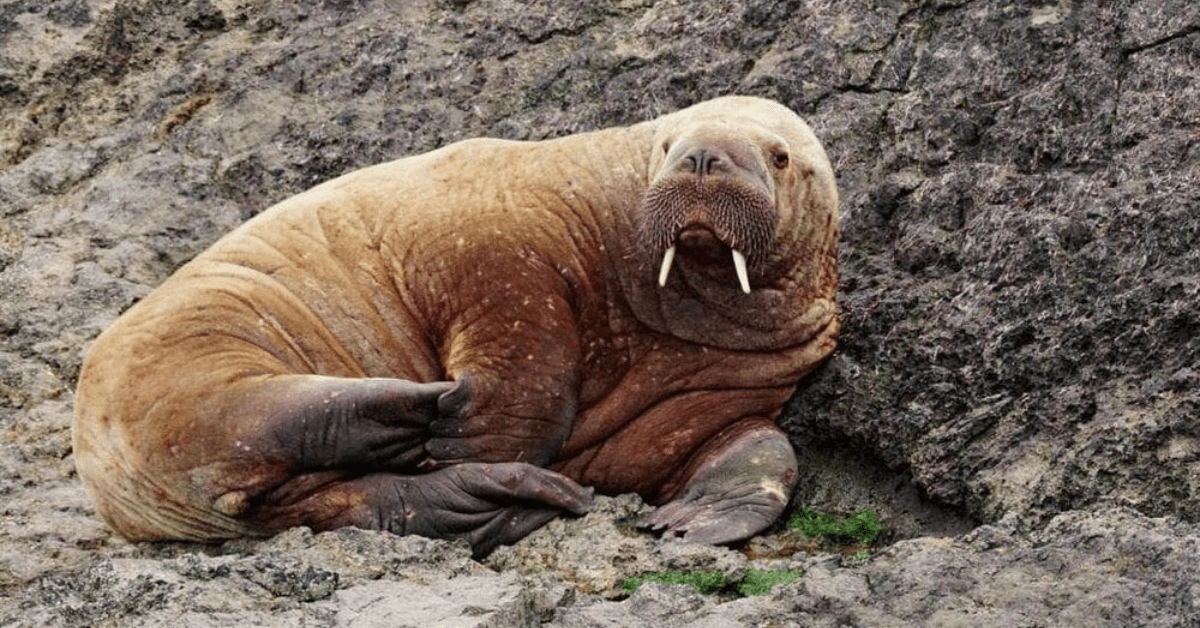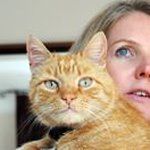
For those of us who feel a deep connection to the animal community, 2023 began with a good omen. Thor the young walrus welcomed the new year safely and peacefully from his temporary home in Scarborough, UK, with the town’s fireworks display having been cancelled for his welfare.
In the wake of the tragic treatment of young Freya a few months ago, Scarborough’s decision to give Thor the respect and autonomy he deserved was a welcome relief. Freya was another walrus who took refuge along our coasts, and who was eventually killed in Norway as humans decided she could not be kept at a ‘safe’ distance from humans.
The choice of these two magnificent animals to share our human environments, however briefly, was a gift: a rare opportunity to appreciate and learn from their strong, open natures. But it was also a stark reminder of humanity’s devastating impact on their natural habitat.
The survival of Thor, Freya, and their walrus kin depends on rapidly-melting Arctic sea ice, and its disappearance is pushing them further into our urban environments – sometimes with fatal consequences.
The story of these two walruses gives us the chance to pause and reflect on the impact of climate change on the animals we live alongside. In such a changing world, animal communication is vital when it comes to listening to these animals and treating them with respect.
Thor the Walrus: Seeking Refuge from Global Warming
Thor was the third walrus to be spotted in the UK over the last two years, after Wally and Freya stopped off on our shores in 2021. To put that in perspective, it’s estimated that there have only been around 27 walrus sightings in the UK in the last 130 years.
Historically, walruses have rarely needed to venture onto land. They prefer to rest on the floating sea ice that keeps them close to their diet of molluscs. But with Arctic sea ice rapidly disappearing, walruses are having to travel far from their feeding grounds to rest on the shore.
While it’s still unusual for walruses to venture as far from their Arctic homeland as the UK and western Europe, it’s likely that we’ll see this type of behaviour increasing in years to come. And, as the two opposing examples of Thor and Freya demonstrate, their ongoing welfare depends on how we as humans choose to interact with them.

(Image: Robert Saville)
Respecting our Fellow Animals: A Choice Worth Making
Freya the walrus lost her life due to human behaviour. Onlookers repeatedly gathered in large crowds close to the edge of the water in the Oslo Fjord she was resting in. Freya’s enormous size and potentially lethal tusks meant she was deemed too much of a threat to human life to allow her to stay. Yet she was identifiable because she had small tusks, an old injury on her flipper, and a pink spot on her nose.
In contrast, cordons were quickly put in place when Thor arrived in Scarborough – the first ever walrus to visit Yorkshire – in order to hold back excited crowds. It’s thought that Thor is the same walrus as had been spotted on the Hampshire coast a few weeks earlier, and was stopping off in order to rest and recuperate before his onward journey.
And while hundreds of people travelled to catch a glimpse of Thor in the harbour, with numbers reminiscent of the height of the summer season, the walrus’s safety and autonomy was prioritised. Scarborough borough council decided to cancel its New Year’s Eve fireworks display to avoid causing him distress, and to give him the time he needed to gather his strength.
Happily, Thor returned himself to the water and was later spotted resting on a wooden pontoon off the Northumberland coast before making his way out to sea.
Neither Thor nor Freya contributed to the global warming that played a part in displacing them from their usual habitat. But they are being pushed closer to our human environments by its effects, and we have a responsibility to relate to them with care and respect. As the impact of climate change is increasingly felt by our fellow animals, empathic animal communication is more important than ever.
Animal Communication: Relating to Wild Animals Affected by Climate Change
Animals can teach us far more about the world than established knowledge structures currently provide. They can provide us with valuable insight, a sense of peace and serenity, and a feeling of being part of something greater than ourselves.
As wild animals such as Freya and Thor the walrus are affected by the impacts of climate change, they’ll be brought into closer and closer contact with human environments. As humans, it is our responsibility to interact with them with respect and a willingness to listen to what they have to tell us.
As Thor’s case shows us and the many people who saw him in person, it is possible to feel a deep connection with a wild animal without endangering it further by refusing to give it space. Animal communication comes in many forms and can be richly rewarding for both human and animal, even from a distance.
My Communication with Thor
“Do not think that you own this planet. We are only passing through and honoured to share space with this incredible Mother.” – Thor
Pea: Why did you decide to sleep on land along the UK coast?
‘It was needed. There was no where else.”
Pea: Thor, is there anything you wish to convey to Humans?
“One step at a time. Do not rush into your lives, tread carefully.”
My Communication with Freya
“It didn’t have to be this way. Do not fear yourselves, Humans.” – Freya
Pea: I am so sorry that you were not given the respect you needed from Humanity to go about your business.
Freya: “I do not feel anger, only sadness. There was another way.
Pea: Are you aware you were named Freya after Frevja, the Norse goddess of love and beauty?
Freya: “Love and beauty are part of our nature, my nature.”
(Main Photo of Freya by Amy Compton / Welsh Marine Life Rescue)
If you would like to learn and develop your ability to tune into the communication of wild animals, take a look at the events and retreats I offer, or explore my range of online courses.
In addition, the third Conversations with Nature World Summit will be held from the 12th-15th April 2023. Do make sure to join the mailing list and be the first to know when registration opens!
Pea Horsley is the Founder of Conversations with Nature World Summit and creator of online learning, Animal Communication Made Easy, a proven 5-step method to learn how to communicate with all species of animals. Pea is the UK’s most highly regarded animal communicator, TEDx speaker, teacher, wild animal retreat facilitator and best-selling author. Join Pea’s membership, The Pride, and be part of a modern answer to a global question, where a global council of animals advise humanity in deep listening and real transformation.

